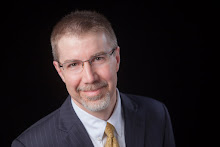I've completed a draft literature review for my doctoral treatise, but now am drifting toward related but more interesting/relevant themes. My initial topic (initial as in third or fourth, but first that I actually worked on formally) was looking at the "perfect storm" of challenges to successfully meeting SACS Comprehensive Standard 3.5.1 on general educational outcomes. There is lack of ownership and ambivalence by faculty toward liberal education/general education. There are varied perspectives toward accreditation, assessment, and the squishy, social science methodologies typically applied toward measuring "competencies." And then there is the ambiguity in the language, with a history of "general education" referring to specific, general education or "core" classes and/or distribution requirements, but a contemporary expectation for general outcomes from the whole academic experience. Throw into the mix the widely varied roles of different four year institutions, and you have a mess.
My more recent explorations have taken off on one of these themes, so perhaps I'm not changing my topic so much as I'm refining it. At least that's what I tell myself. I was, and am, particularly interested in disciplinary differences (see Biglan, 1973). Rather than focusing on attitudes toward general education, accreditation, or assessment, however, I've been reading in a more focused way on attitudes toward pedagogy. Right now I'm in the middle of re-reading a report from the late 1980's that looked at this issue (Stark et at., 1988). I've also done a leap-frog scan in Google Scholar of one of the more promient publication threads evolving from the 1988 piece, passing through Becher (1989), Lattuca and Stark (1994), Hofer (2001), Shaw and Sinatra (2004), Phan (2008, 2009), in which the focus shifts from general exploration of faculty tendencies toward an exploration of the impact of personal epistemologies on pedagogical approach. More later as I work my way down the path...
Becher, T. (1989). Academic tribes and territories: Intellectual enquiry and the cultures of disciplines. Bristol, PA: Society for Research into Higher Education.
Hofer, B. K. (2001). Personal epistemology research: Implications for learning and teaching. Educational Psychology Review, 13(4), 353-383. doi: 10.1023/A:1011965830686
Hofer, B. K. (2004). Epistemological understanding as a metacognitive process: Thinking aloud during online searching. Educational Psychologist, 39(1), 43-55.
Lattuca, L. R., & Stark, J. S. (1994). Will disciplinary perspectives impede curricular reform? The Journal of Higher Education, 65(4), 401-426. doi: 10.2307/2943853
Phan, H. P. (2008a). Multiple regression analysis of epistemological beliefs, learning approaches, and self-regulated learning. Electronic Journal of Research in Educational Psychology, 6(1), 157-184.
Phan, H. P. (2008b). Exploring epistemological beliefs and learning approaches in context: A sociocultural perspective. Electronic Journal of Research in Educational Psychology, 6(3), 793-822.
Schraw, G., & Sinatra, G. M. (2004). Epistemological development and its impact on cognition in academic domains. Contemporary Educational Psychology, 29(2), 95-102. doi: 10.1016/j.cedpsych.2004.01.005
Stark, J. S., & And Others. (1988). Reflections on Course Planning. Faculty and Students Consider Influences and Goals. From the Program on Curricular Intergration and Student Goals. National Center for Research to Improve Postsecondary Teaching and Learning: Ann Arbor, MI. Retrieved from http://www.eric.ed.gov/ERICWebPortal/contentdelivery/servlet/ERICServlet?accno=ED316067





